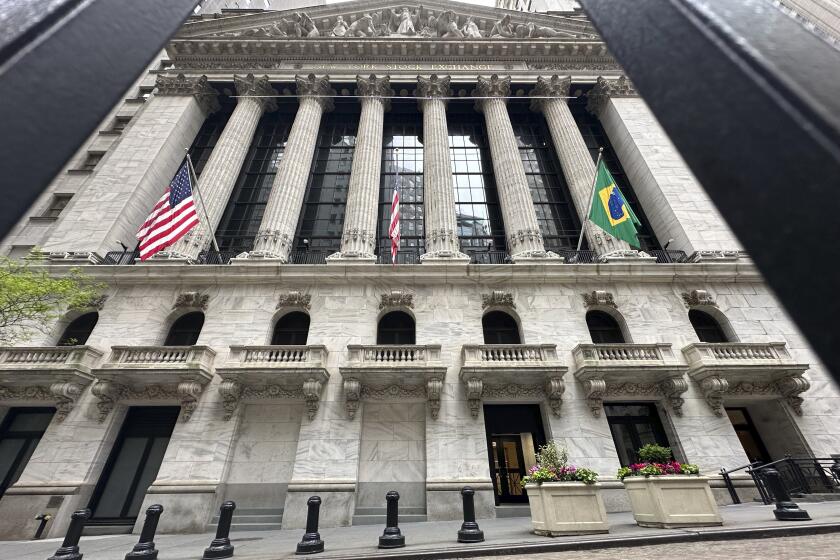SEC inquiry creates buzz at Beijing film festival
BEIJING — News of a U.S. government inquiry into Hollywood studios’ business practices in China — now their largest foreign market — caught some Beijing International Film Festival guests by surprise Wednesday. But it didn’t surprise others familiar with the Asian nation’s long-standing gift-giving culture.
No studio representative at a cocktail reception hosted by the Motion Picture Assn. of America here would comment on reports that the Securities and Exchange Commission has asked at least four Hollywood studios about whether they used inappropriate influence on Chinese officials to smooth access to the nation’s booming movie market.
Among those unsurprised by the inquiry was Michael Peyser, a producer of several of Woody Allen’s films and a professor of film at USC, who is in Beijing this week exploring Chinese co-production opportunities.
“China favors a culture of favors. I’m not saying that there aren’t dirty dealings, but my sense is that the Hollywood studios are aware of how things work and understand the difference between influence and corruption,” Peyser said.
On a small scale, Chinese film companies regularly give local reporters a “red envelope” with a “transportation fee” of about $30 for attending news conferences. The companies have learned not to try to pay overseas journalists flustered by the practice, and Hollywood studios don’t typically fall prey to this practice at all, offering gift bags with DVDs and branded trinkets instead.
On a larger scale, favors and bribes of much greater value are understood to be a part of what’s smoothed China’s breakneck economic expansion.
Mathew Alderson, a Beijing-based entertainment lawyer and Asia Pacific partner at Seattle-based international law firm Harris Moure, called the timing of news of the SEC inquiry “instructional.”
“The news broke during the second Beijing International Film Festival, when media attention was focused on the biggest foreign box-office market in the world,” Alderson said. “Mixing with U.S. delegates here during the festival I’ve been struck by how many still regard China as the Wild West. There is now something of a gold rush mentality.”
“Those in the film business who regarded China as the Wild West are now in for a shock because the sheriff just rode in,” Alderson added. “The less obvious message is that interests more powerful than entertainment may be prepared to sacrifice Hollywood in order to embarrass the Chinese about allegedly corrupt practices.”
Alderson drew a comparison to the case of Chinese-Australian iron ore trader Stern Hu, who in 2010 began a 10-year jail sentence in China for corruption after his employer, Australian mining giant Rio Tinto, appeared to some to have gotten the better of a Chinese state-run mining competitor on prices for the commodity used to make steel.
“Certain factions in China may well be tempted to respond [to the new SEC allegations] by conducting their own investigations and using allegations of impropriety to stifle a worrisome cultural influence and punish the U.S. for casting the first stone,” Alderson said.
The inquiry, which may have begun as long as two months ago, comes as a U.S.-China film agreement — first announced in February in Los Angeles by Vice President Joseph Biden and Chinese Vice President Xi Jinping — is due to be signed in the coming week, said a source familiar with the matter who spoke on condition of anonymity because the person is not authorized to discuss the matter publicly.
The agreement, which followed a decade of U.S. wrangling with China at the World Trade Organization, allows 14 more 3-D and large-format U.S.-made films to screen in China each year and boosts revenue percentages returned to U.S. companies.
More to Read
Inside the business of entertainment
The Wide Shot brings you news, analysis and insights on everything from streaming wars to production — and what it all means for the future.
You may occasionally receive promotional content from the Los Angeles Times.






